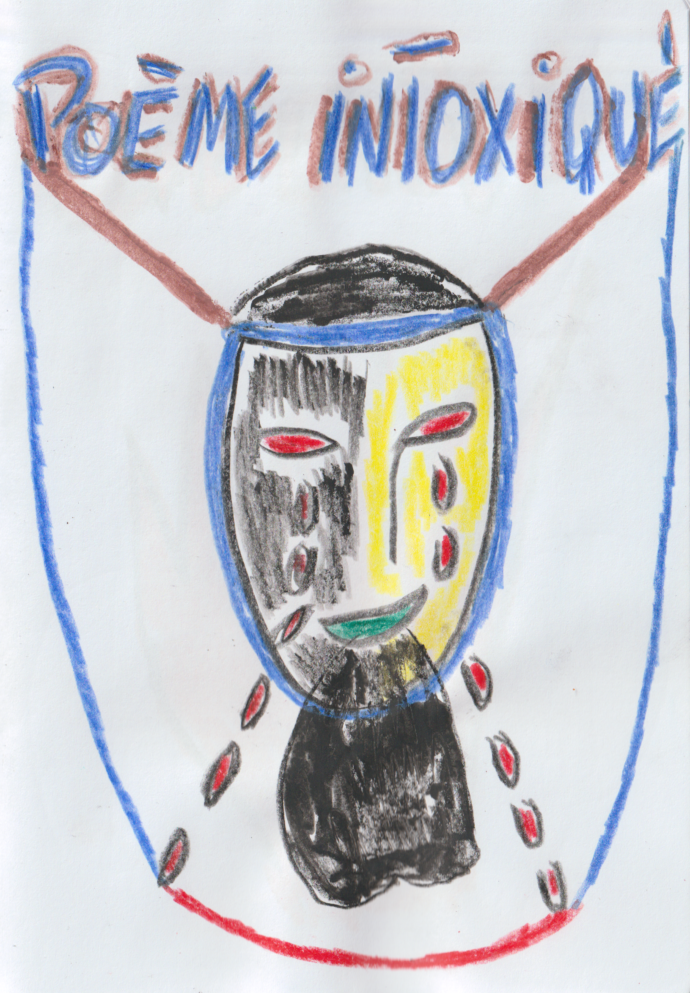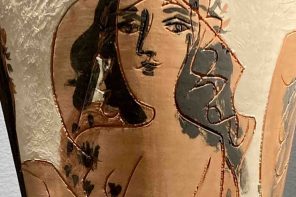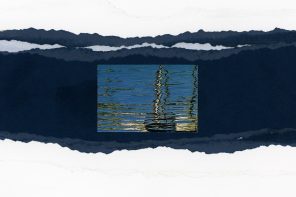Read four poems by Liliane Giraudon, translated by Lindsay Turner.
In its French edition, Liliane Giraudon’s Sphinx (La sphinge mange cru, Éditions Al Dante, 2013) is a slim red volume. I can’t think of this book in a jacket of any other color, although it may not be red when the English translation comes out from Litmus Press next fall. Sphinx is a book that practically drips with the blood of its enemies. It’s delicately marbled, like good meat. Like all of Giraudon’s work, it is enigmatic without ever being coy. It’s allusive, anchored in the classical past and in a more recent past of personal memory, but it’s firmly on the side of the living and our problems. It is completely fierce and absolutely lovely.
One of experimental French writing’s most powerful and most undersung figures, Giraudon was born in Marseille in 1946. She continues to live and work in Marseille, and her writing is inseparable from the place, shaped by the vibrant community of poets and writers and artists Giraudon has herself shaped, as well as by the city’s gritty and diverse cosmopolitanism. Giraudon’s (many) books have, since 1982, been primarily published by France’s Éditions P.O.L. Giraudon has also been instrumental as an editor for influential reviews such as Banana Split, Action Poétique, and If; she performs and collaborates widely, including with (for example) Nanni Balestrini, Henri Deluy, Jean-Jacques Viton, and many others. Two of her books (Pallaksch, Pallaksch and Fur)were published in English by Sun & Moon Press in 1994 and 1995, respectively. In addition to Sphinx, Giraudon’s collection Love is Colder than the Lake is also forthcoming in 2023, translated by me and Sarah Riggs, from Nightboat Books.
Experimental, capacious in its reference, ranging across and dwelling in between prose and poetry—sometimes, too, between writing and drawing—Giraudon’s work is difficult to pin down but also utterly distinctive. While “experimental” writing, in France as in Anglophone spheres, can sometimes mean the renunciation of personality or voice, I have the sense that for Giraudon, linguistic opacity, fragmentation, or excess serve alternately to reveal or shield the personal, as well as to locate the personal in a world that is as opaque, confusing, fragmented, excessive, disjointed, and—yes—beautiful as this world is.
The poems in this selection come from roughly the middle of Sphinx. They’re part of a series of short untitled poems that stage a “she.” Sometimes she does things, sometimes she has memories. Is she the Sphinx? Her world is both mythical and domestic. Sometimes she poses questions or makes utterances that chill us—us, in the present—to the bone. In addition to this series, the book also has an “Introit” and a final poem called “After”: there is, in other words, the structure of a narrative. But I’m resisting calling Sphinx the story that comes most easily to hand, a contemporary re-writing of the Sphinx myth. (I’m bad at mythology, but the Sphinx—not the Egyptian statue but a female figure, sibling to the Chimera, the Hydra, et al.—has been plaguing the city of Thebes; she kills herself or is killed by Oedipus after Oedipus solves her riddle in order to gain the throne promised by Creon to whoever can figure it out.)
The Sphinx is here in the book for sure, as are Oedipus and Creon. Thebes comes up. There’s also Jocasta, Electra, and a host of other Greeks. And then there’s Schiller, Chekhov, Proust—the Europeans, a party of Giraudon’s own making. But looming over all these figures are the timely utterances of the poems’ speaker: “elsewhere the people’s assembly has voted / declaring young women the same as illegals”; “to organize pessimism is a revolutionary act”; “and the women?” This is the Sphinx’s expanded world, and we’re living in it, as is “she.” “A dramatization of the present,” Giraudon writes in one of the poems. “Not History.” In our world, who keeps her secrets, haunts our city, and flexes her claws? Who sees what we sometimes can’t? Who gives us her ragged record of the way things are? She does, here, in these poems.




